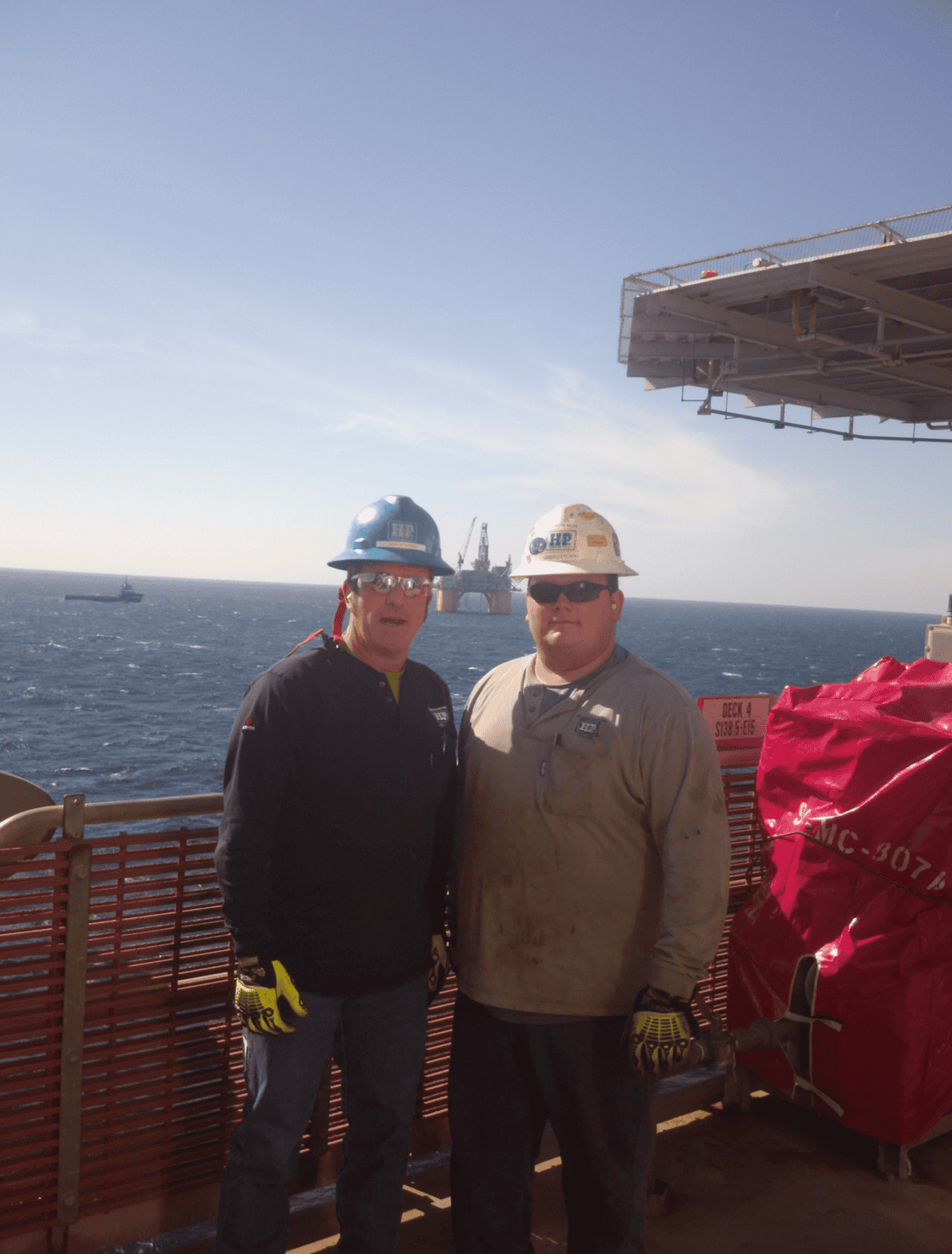
“The first couple of days offshore I was a nervous wreck,” said Chip Stevens, Safety Paramedic on Rig 410. “The platform shifts and shakes. Everything was compact. I knew how to take care of sick people, because I’d been a firefighter medic for 20 years. As a firefighter I had a hospital to take people to, but here I was going to be the rig doctor – surrounded by hundreds of miles of water and hours to fly back to land. I was scared to death.”
But that was ten years ago. On his first day, he described a strong safety medic who trained him, and he compared the H&P team mentality to that of the fire department.
“People took me under their wing, showed me where to go and what to do. They taught me what ‘could’ hurt me and that I’d get accustomed to the rocking and ‘sea sickness’ would subside. Within a week it felt normal, and we were already beginning to bond as a team,” said Chip.
Since then, he has rescued people from serious injuries, dressed and bandaged minor wounds, provided pain medicine for tooth aches, tested and cared for flus, colds and COVID-19, among many other things.
“As a firefighter we’re only helping during the height of the crisis, but here we’re helping our team – our second family. I get to support someone from the day an ailment or injury occurs, through recovery. I am also an ear to listen to struggles – so many of our offshore rig team are like my family (in fact my son works on another offshore rig!) and I care personally about their wellbeing.”
More than responding to medical needs, Chip's job is to Actively Control and Remove Exposures to prepare and prevent them. He maintains medical lockers stocked with first aid, antibiotics, cardiac medications, flu and COVID tests, EKGs, monitors and more. He provides training and support during safety meetings. Medics help land all the helicopters, manage the musters and drills and handle investigations and paperwork. He keeps first aid kits prepped throughout the platform – because it takes a long time to get from one place to another.
In fact – one of the ways the offshore teams stay mentally and physically healthy while working is in the onsite gym. Chip still runs 25-30 miles a week on treadmills in the gym or around the outskirts of the heliport.
“I do it because I enjoy it, but it’s definitely a skill that helps if I need to quickly get to an incident on a different area. From the medic office to the top of the rig is 178 steps – and I need to be in good enough shape to make that trek quickly if someone needs me!”
"Being out here can feel overwhelming,” says Chip, “but this is a great career for me. We respect each other and take care of each other. It can be challenging, but it’s fulfilling. We take pride in our work and if anyone is interested in working offshore, I’d gladly tell them all the great things about life out here.”

